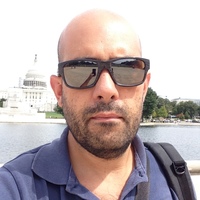short draft of my new book on Hegel (introduction and first pages)
Research Interests:
In this contribution I intend to tackle the connection between Marx’s and Wittgenstein’s thoughts from the point of view of their conception of social practices, explanation, meaning and use and to highlight that both thinkers aim at... more
In this contribution I intend to tackle the connection between Marx’s and Wittgenstein’s thoughts from the point of view of their conception of social practices, explanation, meaning and use and to highlight that both thinkers aim at transforming the role of philosophy into an instrument for the diagnosis of human organization of the communitarian and productive life. I will firstly give an account of Marx’s conception about the relation between labor and production and I will highlight that the former represents for him the concrete practical meaning through which one should explain both social and individual wealth. Secondly, I will emphasize that Wittgenstein also conceives of the meaning as something that can be explained through its use and the human person cannot be estranged by her rule following. Eventually, I will defend the idea that for both Marx and Wittgenstein enormous confusions and misconceptions arise when one disregards this concrete practical dimension, which jeopardize the philosophical task to account for the real conditions under which the practical life is set up.
Research Interests: Philosophy of Action, Marxism, Marxist Economics, Philosophy of Karl Marx, Philosophy of Social Science, and 12 moreSocial Ontology, Social Philosophy (Philosophy), Wittgenstein, Later Wittgenstein, Social and Political Philosophy, Social Practice, Marxist political economy, Rule-Following, Philosophy of Language (esp. Wittgenstein, Rule-following, and the Normativity of Meaning), Wealth, Wealth Creation, and Ludwig Wittgenstein
This article deals with the recent interest of the Hegelian studies around Hegel's so-called naturalism and maintains that mind is possible by virtue of the relationship mind-life and that life and mind are mutually dependent. In order to... more
This article deals with the recent interest of the Hegelian studies around Hegel's so-called naturalism and maintains that mind is possible by virtue of the relationship mind-life and that life and mind are mutually dependent. In order to understand the continuity mind-life the contribution accounts for both the Hegelian theory of self-consciousness and the chapter on life in the Science of Logic. Hegel's peculiarity consists in investigating concrete issues such as life, nature, desires and subjective purposiveness by deploying a logical and formal analysis in order to attain a general comprehension of them. The result is that Hegel does not explain the mind as separate from nature but rather as the outcome of a crossed stratification between nature and spirit. The contribution also gives an account of the interdisciplinary aspects connected with Hegel's naturalism and his proposal about the continuity life-mind.
